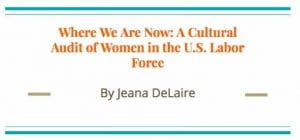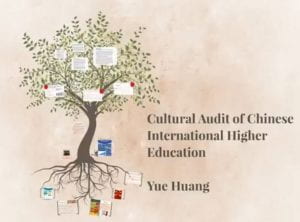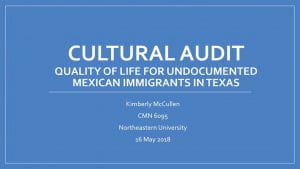 As we forge into this Information Age and World of Robotics, the concept of Human Literacy has been introduced to the stage. What is Human Literacy? Northeastern University President Aoun has proposed Human Literacy to mean our unique abilities to adapt, collaborate, and offer empathy in comparison to computational literacy generated through artificial intelligence. This new use of the term human literacy is an example of a cultural linguistic adjustment in professional studies within higher education. This is where the idea of a cultural audit takes footing. So, what is a cultural audit?
As we forge into this Information Age and World of Robotics, the concept of Human Literacy has been introduced to the stage. What is Human Literacy? Northeastern University President Aoun has proposed Human Literacy to mean our unique abilities to adapt, collaborate, and offer empathy in comparison to computational literacy generated through artificial intelligence. This new use of the term human literacy is an example of a cultural linguistic adjustment in professional studies within higher education. This is where the idea of a cultural audit takes footing. So, what is a cultural audit?
A cultural audit is an in-depth analysis of a defined culture from multiple perspectives. Within our Cross-cultural Communication program, we focus a culture from four perspectives history, politics, linguistics, along with personal awareness of biases about the culture. In the following are excellent examples of cultural audits developed by graduate students, who participated in the Cross-cultural Communication program. Explore these brief presentations to examine fascinating insights into very different cultural fields.
Jeana Delaire – Women in the Workplace in the U.S.
Yue Huang – Chinese Students’ Global Mobility
Kimberly McCullen – Quality of Life for Undocumented Mexican Immigrants in Texas
Note the cultural fields selected by Jeana and Yue are at the macro-cultural level, whereas Kimberly is more of a mesa-cultural perspective (middle ground between individual and society as a whole). These types of presentations offer opportunities for strategy development or campaign advocacy. Moreover, the analysis and evaluative critical thinking necessary to generate a strong cultural audit, also support critical cognitive skills for human literacy.
How can cultural audit influence the Information Age? Although vast amounts of information are available at our fingertips, it requires human literacy to construct integrated thinking. Being able to design a cultural audit illustrates the value of human literacy within our Information Age.
Posted by Patty Goodman, Ed.D., Faculty
References
Aoun, J. E. (2017). Robot-proof: higher education in the age of artificial intelligence. MIT Press.
Grabau, C. (August 15th, 2018) Book Review- Robot Proof: Higher Education in the Age of Artificial Intelligence. Retrieved from https://www.slu.edu/blogs/cttl/2018/08/15/book-review-robot-proof-higher-education-in-the-age-of-artificial-intelligence/

